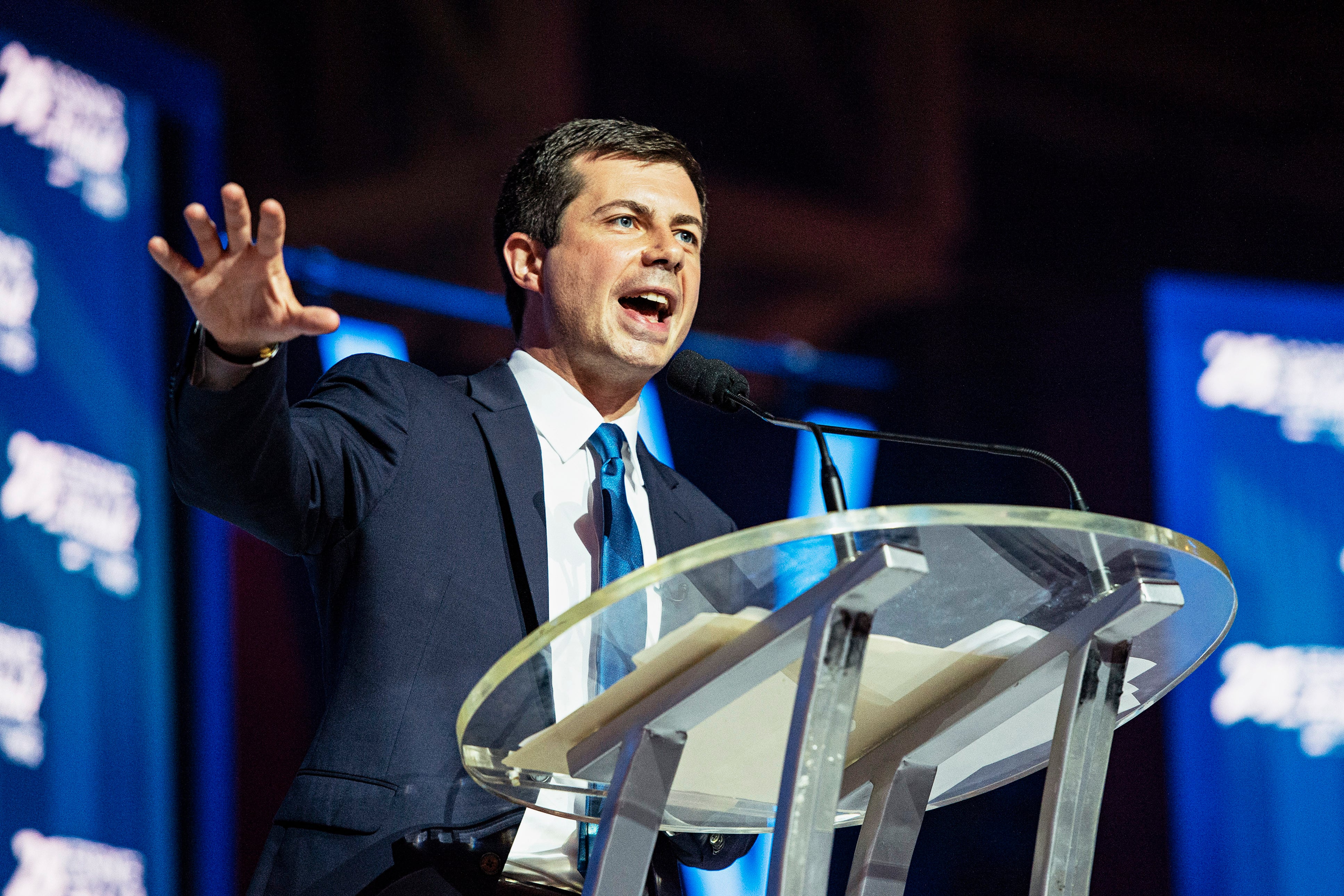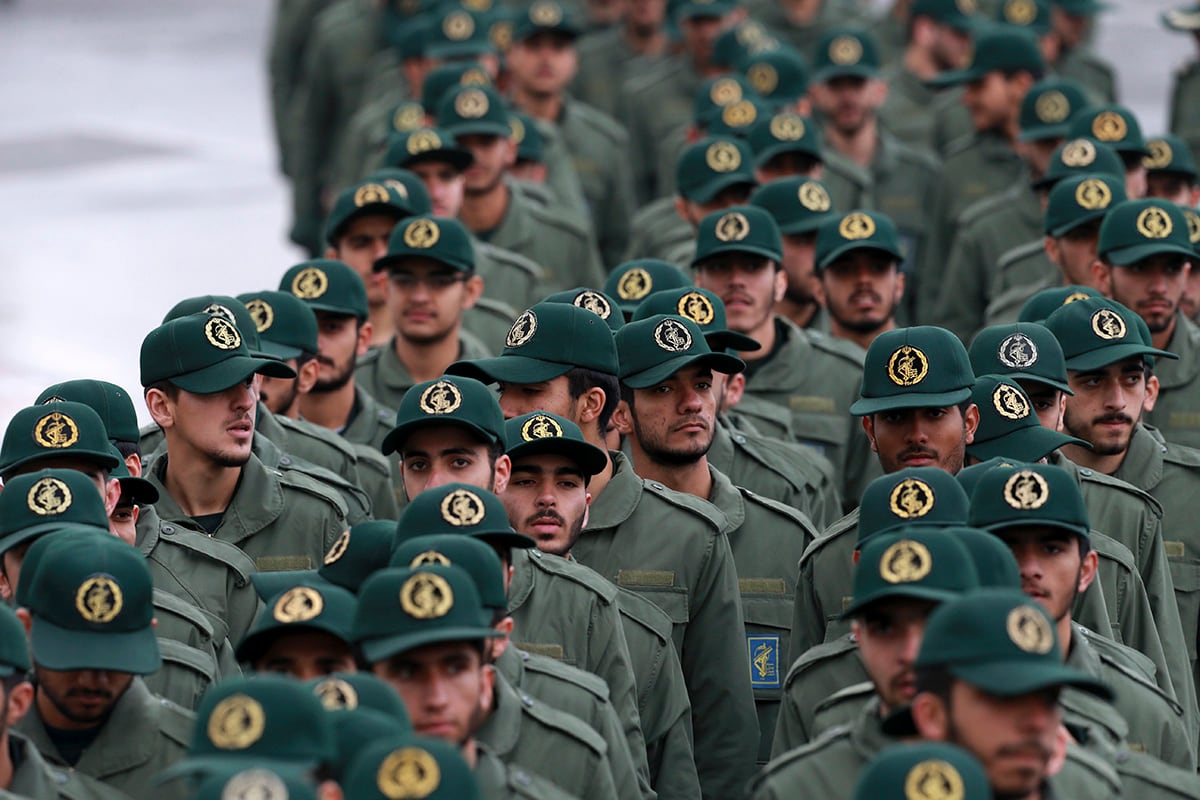The 2020 presidential hopefuls saw their first significant foreign policy discussion this week during the two-night Democratic Party debate in Detroit, including questions about how long U.S. troops should remain in Afghanistan.
In-depth conversations on national security issues were absent from the first presidential debates — held in late June — despite numerous comments from the 20-plus declared Democratic candidates using their time on the campaign trail to attack President Donald Trump for his performance as commander in chief.
And while issues of health care policy and immigration reforms still dominated the second round of debates, moderators devoted a small portion of the nearly six hours of the two-part event to foreign military threats and current U.S. military operations.
Here’s what the candidates said:
RELATED

Afghanistan
Multiple candidates were asked if they would withdraw all U.S. forces from Afghanistan in their first-term in office, ending the nearly 18-year-old conflict. John Hickenlooper Jr., former governor of Colorado, was the only one who said he would keep a smaller peacekeeping force there than the current 14,000-personnel deployment.
“If we completely pull our troops out of there, you are going to see a humanitarian disaster,” he said. “We are going to have to be in Afghanistan. Look at the progress that has happened in that country. We are going to turn our backs and walk away from people that have risked their lives to help us and build a different future for Afghanistan and that part of the world?”
New Jersey Sen. Cory Booker offered a similar response, saying that setting an “artificial deadline” for any withdrawal could ”create a vacuum and the environment for terrorism.” But he did commit to bringing troops home “as quickly as possible.”
He also took a swipe at Trump for announcing military moves on social media, saying, “I will not do foreign policy by tweet.”
Others in the field said they believe U.S. involvement in Afghanistan must end immediately.
“We will withdraw. We have to,” said South Bend Mayor Pete Buttigieg, the only current presidential candidate to serve on the ground in Afghanistan (with the Naval Reserves).
“Around the world we will do whatever it takes to keep America safe. But I thought I was one of the last troops leaving Afghanistan (in 2014) … We're pretty close to the day when we will wake up to the news of a casualty in Afghanistan who was not born on Sept. 11.”
He also promised a three-year sunset on any new authorization of military force, to prevent future open-ended military engagements overseas.
Hawaii Rep. Tulsi Gabbard, who served with the National Guard in Iraq, similarly said she would bring troops home “within my first year in office, because they shouldn’t have been there this long.”
Sen. Bernie Sanders, I-Vt., was asked why voters should believe his promises to keep America from being “policemen of the world,” a pledge which Trump also made and has found problematic to enforce.
“What we need is a foreign policy that focuses on diplomacy,” he said, citing the length of the war in Afghanistan. “Ending conflicts by people sitting at a table not by killing each other. I will go to the United Nations and not denigrate it, not attack the UN, but bring countries together … and solve those problems peacefully.”
Former Texas congressman Beto O’Rourke echoed that sentiment. “It is time to bring those service members back home from Afghanistan but also from Iraq, also from Yemen and Somalia and Libya and Syria. There is no reason for us to be at work all over the world tonight.”
RELATED

North Korea
Sen. Amy Klobuchar, D-Minn., and Rep. Tim Ryan, D-Ohio, squared off on the debate’s first night over the issue of negotiating with North Korean leader Kim Jong Un.
Ryan blasted Trump for meeting with Kim, saying he gave the dictator “global credibility” without any real return for the United States.
“(Diplomacy) is long, tedious work,” he said. “Much of it done outside of the eye of the TV camera. And as president, you've got to monitor that and be very disciplined every day. Don't go give a dictator a huge win. Sit down and do your job.”
But as she has said on the campaign trail, Klobuchar said she wants to leave open the option of meeting with any world leader, in hopes of avoiding military conflict.
“What I don’t like is how this president has handled it … He has done the ‘go it alone’ doctrine with the rest of the world,” she said. “He’s taken us out of the climate change agreement, out of the Iran nuclear agreement, out of the Russian nuclear agreement, and I don’t agree with that … I do believe you meet with people, but you better have an agenda.”
Iran
Entrepreneur Andrew Yang said Wednesday he would work to de-escalate tensions with Iran, which he blamed on the Trump administration’s withdrawal from the Iran nuclear deal. He railed against Trump’s “erratic and unpredictable” conduct, even with allies.
Washington Gov. Jay Inslee similarly chastised Trump for “beating the drums of war” with Iran, saying the next commander in chief needs to be a more moderate, thoughtful negotiator.
Asked how he would handle the current situation in the Middle East, Inslee said there is “no primer” for a president, but noted he believes he made the right call when, as a member of Congress, he voted against the Iraq War.
RELATED

Nuclear weapons
Massachusetts Sen. Elizabeth Warren and Montana Gov. Steve Bullock squared off over their campaign trail comments regarding preemptive nuclear strikes. Warren said she is completely opposed to the idea.
“The United States is not going to use nuclear weapons preemptively and we need to say so to the entire world,” she said. “It reduces the likelihood that someone miscalculates, someone misunderstands.”
But Bullock said he doesn’t want to “take that off the table.” He said he wants a stronger focus on diplomacy over threats in U.S. foreign policy, “but drawing those lines in the sand at this point I would say no.”
Other topics
- Author Marie Williamson was not asked any national security questions directly, but said that America’s national defense today “is driven more by short-term profits for defense contractors than by genuine peace building.”
- Both Gabbard and Colorado Sen. Michael Bennet mentioned the ongoing cost of overseas operations, suggesting those billions each month would be better spent on other domestic priorities.
- Former Vice President Joe Biden called his vote for the Iraq War “a bad call” and said he opposed the Afghanistan surge, which occurred while he was working in the Oval Office. Gabbard said that as a service member who deployed to Iraq, “we were lied to” about the goals of that intervention.
- Along with Buttigieg and Gabbard, two other veterans are among the large field of Democratic hopefuls. Neither Massachusetts Rep. Seth Moulton and former Pennsylvania Rep. Joe Sestak qualified for either of the first two debates.
Leo covers Congress, Veterans Affairs and the White House for Military Times. He has covered Washington, D.C. since 2004, focusing on military personnel and veterans policies. His work has earned numerous honors, including a 2009 Polk award, a 2010 National Headliner Award, the IAVA Leadership in Journalism award and the VFW News Media award.
Joe Gould was the senior Pentagon reporter for Defense News, covering the intersection of national security policy, politics and the defense industry. He had previously served as Congress reporter.




